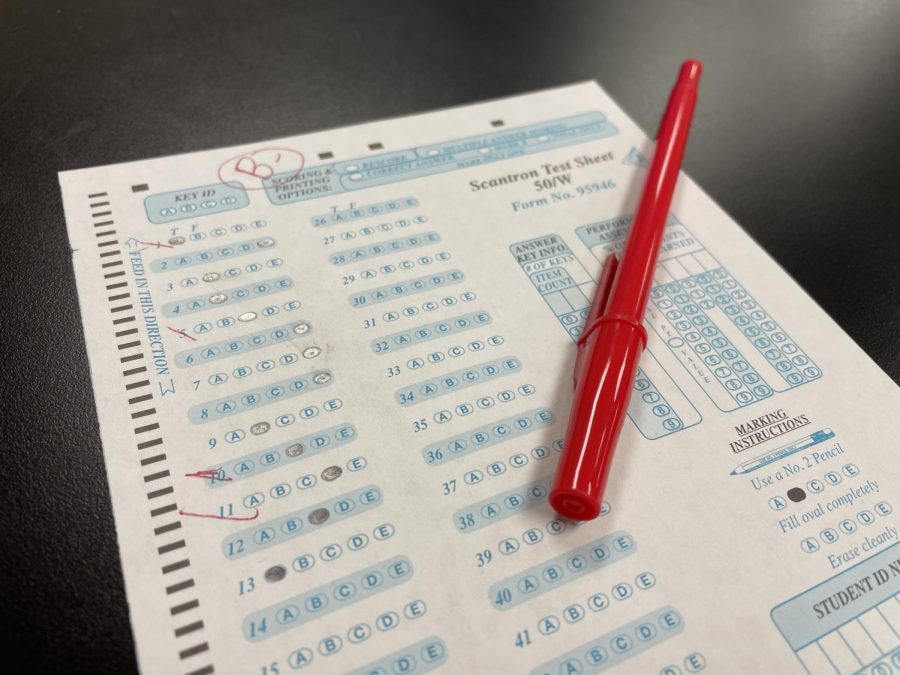Gen-Z strives for academic validation
February 19, 2021
As soon as test grades are released, students crowd around and exchange their scores. The high-scorers boast about their grade while others stay silent.
It is only human nature to constantly compare and judge. Students specifically are quick to compare themselves to others academically. When the topic of grades comes up, some students stray away from it, but many do not have an issue talking about it. Individuals reflect on themselves making it easier to understand how they can improve and grow. Students are positively motivated to extend their knowledge on a subject when once exposed to other’s opinions.
“I think there is way more of an emphasis on using [grades] to understand if we met the objectives and requirements,” said LHS teacher Sarah Burkett.
Burkett claims that as transparency surrounding grades has increased in recent years, students have been able to evaluate their knowledge of a specific subject and strive for improvement. When students are more open to having conversations about academics, they are able to shift their focus to the content learned and how improvements can be made.
“There is a larger emphasis on reflecting on our learning and using our grades to understand our learning rather than just random grades being assigned,” said Burkett.
Gen-Z has formed a habit of publicly disclosing grade-related information and although some believe this encourages growth within the individual, it has not always been viewed this way. Students have not always had or felt obligated to have these conversations as grades were a more taboo subject.
“[In the past] it was very quiet. [Grades were] not normalized to talk about at all,” said Burkett.
As technology has progressed and become more prominent in education, the availability and accessibility of grades have paralleled this growth. Students, parents and teachers all have access to see how well students are performing in each subject at virtually any time. Although accessibility is a great benefit, many disadvantages accompany this as well.
Engaging frequently in conversations about grades easily puts unnecessary pressure on students who may not feel comfortable opening up about this particular topic. Some students could experience peer pressure to speak about their grades as it has become a common topic. The constant fear of judgment often fuels tension during school-based discussions.
“If you got a bad grade, depending on how other people did, you will feel either more confident or upset with yourself over your grade,” said LHS sophomore Emma Southwick.
Teenagers are often dependent on the feedback they receive from others. Negative feedback and criticism put an image of failure into their head which can lead to a toxic mindset of never feeling good enough.
“Sharing grades or test scores has become more normalized because teenagers these days are always comparing themselves to others,” stated Southwick.
When breaking down a discussion regarding the grade itself, it is important to ask if the content is the issue or rather our mindsets are negatively affecting the conversation. Finding the balance between helpful and harmful comparisons is imperative to academic growth.









